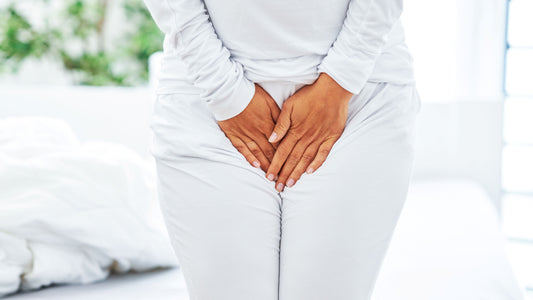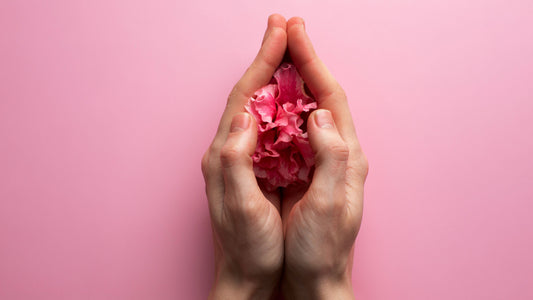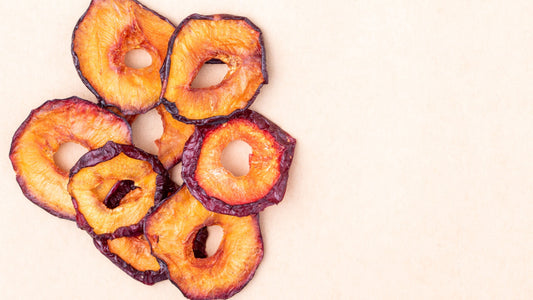>>> Read the updated part of this blog post:
Dr. Anna Cabeca knows that vaginal health is extremely important in women’s lives, and not only in their reproductive years. “We need to maintain vaginal health all our lives”, she says.
“Vaginal health is a significant indication of internal health. And sex continues throughout our lifetimes. We want our health and function to be as optimal and vital as possible.”
Dr. Cabeca is board certified in gynecology & obstetrics, as well as anti-aging and age management medicine. She is Chief Medical Officer of Cabeca Health, an integrative medicine practice in Brunswick, Georgia, the area where she has been practicing since 1999. Vaginal health is one of her primary concerns.
“I take the vagina seriously because I’m a gynecologist, but also because when I started practicing in rural Georgia, three of my patients in the first six months had serious vaginal disease. I’ve had patients tell me they were told that they never need to have another pap smear after a hysterectomy or after menopause because they would never have any other issues. This is a very grave misconception and misinterpretation. The pap smear is not only a cancer test for the cervix, but also assesses vaginal cancers. The vagina still needs to be examined.”
The importance of the vagina, she notes, is illustrated by the fact that “all life has begun at some point or another through or within” it. “We continue”, she says,
“despite being past the reproductive years, to consider the vagina very important for overall health: vaginal dryness, vaginal pain, atrophy, prolapse, loss of pelvic support, vaginal support allowing the bladder to sink, the rectum to prolapse into the vagina… these are all issues of poor vaginal health and poor muscle strength in the vagina, and can be associated with fascial breaks along the vagina as well.”

Dr. Cabeca emphasizes that vaginal health is a significant indication of internal health.
“The vagina is a representation of our internal health,” she says, “and sex continues throughout our lifetimes as well. So it’s important to maintain vaginal health all our lives. We want our health and function to be as optimal and vital as possible.”
Several factors can make a difference in vaginal health, she says, addressing specifically the lining of the vagina, the mucosal layer, the muscular layer, and the intimal layer—the layer in between. “The health of this tissue can be affected by our intestinal health”, notes Dr. Cabeca. “We need to make sure we have enough good bacteria within our body and keep the acid/pH balance stable. The vagina should be acidic, and that will keep bacteria and infections reduced.”
The main complaints women have that need to be addressed says Dr. Cabeca, are vaginal dryness, pain during intercourse, and recurrent vaginal discharges.
She outlines three key things women can do today for vaginal health:
1. Healthy Vaginal Probiotics or Internal Probiotics in a Healthy Digestive System
Lactobacillus and bifidobacterium are the ones most commonly used for the vagina. “They can be taken orally, preferably on an empty stomach, or by making a vaginal douche with a suppository using a little bit of filtered water”, explains Dr. Cabeca. “This can be inserted, or they can dissolve a probiotic capsule that has at least 50 billion multistrains of good bacteria, mixing it with a little bit of water, and douche with it.” Alternately, it can be mixed with a little bit of yogurt (if there isn’t a dairy intolerance) and inserted into the vagina. “This is the only time I’ll recommend douching”, adds Dr. Cabeca, “normally I’m against douching because it does disturb the vaginal pH. You can get the probiotics at a health food store; high quality strains make a difference.”
2. Vaginal Moisture during Intercourse
Dryness can be very uncomfortable. Coconut oil is the best remedy, says Dr. Cabeca. “Extra virgin organic coconut oil is my favorite oil”, she notes. “A little bit goes a long way. It is very good for soothing skin, especially in the tender vaginal area; it will not irritate or burn.”
3. Vaginal DHEA
An article in Menopause: The Journal of the North American Menopause Society [Effect of intravaginal dehydroepiandrosterone (Prasterone) on libido and sexual dysfunction in postmenopausal women. 2009: Vol. 16, No. 5, pp. 923/931] addressed the effects of vaginal DHEA on libido/sexual function in postmenopausal women, and showed 10 mg of vaginal DHEA over a period of 12 weeks resulted in a 23% improvement of desire, a 75% improvement of arousal and lubrication, and 57% improvement in dryness during intercourse, all vs. a placebo. Results were universally significant and improved.
Another study looked at the effects of vaginal dryness and DHEA use at different 2.5 mg, 5 mg and 10 mg dosages, and the 5 and 10 mg dosages were shown to have made significant improvements in vaginal dryness and atrophy and all three layers of the vaginal tissue including the musculature, without any systemic or increase in blood levels of estrogen. “And that is key, as estrogen works only on the lining, the mucosal layer, but DHEA goes deeper. My patients are finding this to be so amazing.”
"I have been providing my community my specially formulated, carefully researched, feminine cream Julva® for over a year now, with amazing results. Julva is just the right blend of nourishing ingredients that work well with DHEA to heal your vaginal dryness.
While DHEA is the main ingredient of Julva, my cream also contains:
- Alpine rose plant stem cells
- Vitamin E
- Coconut oil
- Emu oil
- Shea butter
So when it comes to Julva, that’s exactly what you get — a long-term solution that is toxin-free, additive-free, and is all natural! This is the only way to make sure your lady bits aren’t absorbing anything that can contribute to your vaginal dryness, affect your pH and normal flora or other symptoms your body might be dealing with."
Order Your Free 7-Day Trial Pack of Julva
by Jeff Morris





